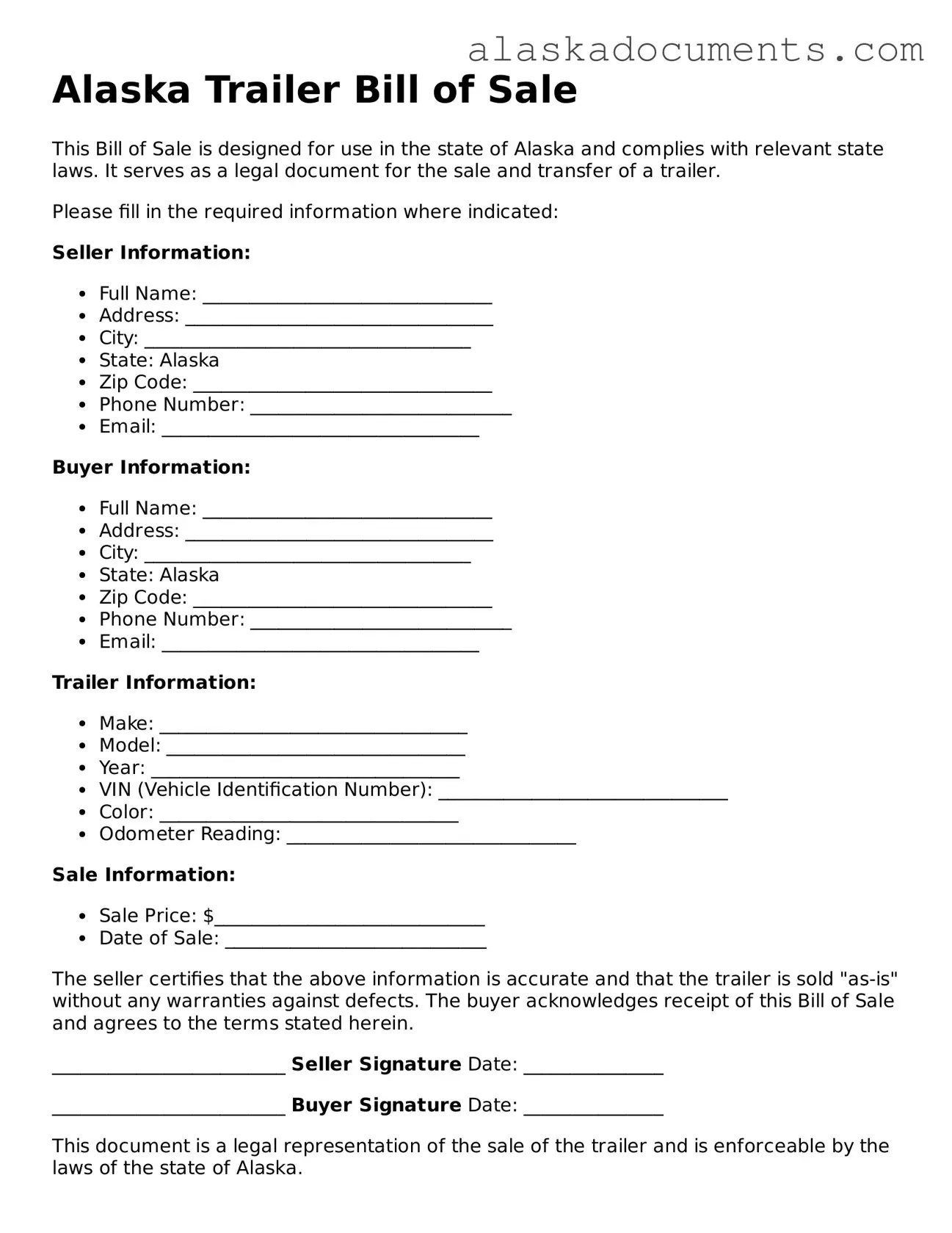The Alaska Trailer Bill of Sale form bears similarities to the Vehicle Bill of Sale, which is used for the transfer of ownership of motor vehicles. Both documents serve as proof of the sale, detailing essential information such as the buyer's and seller's names, addresses, and the sale price. Like the Trailer Bill of Sale, the Vehicle Bill of Sale typically includes the vehicle identification number (VIN) and any relevant details about the vehicle’s condition. This ensures that both parties have a clear understanding of the transaction, which can be crucial for future reference or legal purposes.
Another document that aligns closely with the Trailer Bill of Sale is the Boat Bill of Sale. This document is specifically tailored for the sale of boats and watercraft. Similar to the Trailer Bill of Sale, it includes pertinent information about the buyer and seller, as well as a description of the boat, including its hull identification number (HIN). Both documents function as a formal record of the sale, protecting the interests of both parties involved and providing proof of ownership for the buyer.
The Motorcycle Bill of Sale also shares characteristics with the Trailer Bill of Sale. This document is used when transferring ownership of motorcycles. It captures essential details such as the motorcycle's make, model, year, and VIN, paralleling the information required in a Trailer Bill of Sale. The primary purpose remains the same: to document the transaction and protect both the seller and buyer in case of disputes or future ownership claims.
In addition, the RV Bill of Sale serves a similar purpose for recreational vehicles. Like the Trailer Bill of Sale, this document includes details about the RV, such as its make, model, year, and VIN. Both documents provide a clear record of the sale, ensuring that the buyer has proof of ownership and that the seller has documented the transfer of the asset. This can be particularly important for registering the vehicle or RV with state authorities.
The Aircraft Bill of Sale is another document that parallels the Trailer Bill of Sale. This form is used to facilitate the sale of aircraft and includes detailed information about the aircraft, such as its registration number and make. Both documents function as a legal record of the sale, ensuring that ownership is clearly transferred from the seller to the buyer. The importance of having a well-documented sale is critical in both aviation and trailer ownership, as it can affect registration and insurance matters.
When considering the various types of bills of sale, it is essential to utilize effective templates to ensure accuracy and clarity in transactions. One valuable resource in this regard is the TopTemplates.info, which offers free and customizable PDF forms for invoicing that can aid in documenting any sale, including those of trailers and other vehicles. These templates simplify the process and provide a structured approach to managing sales records efficiently.
Lastly, the General Bill of Sale can be considered similar in function to the Trailer Bill of Sale. This document is often used for the sale of personal property and can encompass a wide range of items, including trailers. It provides a record of the transaction, detailing the buyer's and seller's information and the item being sold. While it may not contain the specific details pertinent to trailers, its purpose remains aligned with ensuring both parties have a clear understanding of the sale and its terms.

